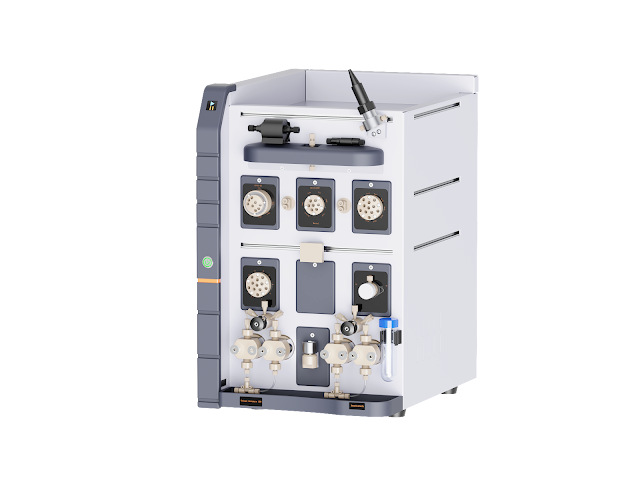Understanding Innovations in Protein Purification: A Breakthrough Approach
Protein purification is a fundamental technique in biochemistry and molecular biology that is crucial for understanding cellular functions and developing pharmaceuticals. Fast Protein Liquid Chromatography (FPLC) is a significant technique in this field that offers precision and efficiency compared to traditional methods. FPLC utilizes a pressure pump to pass the protein sample through a column filled with specialized material, allowing for the separation of proteins based on their properties. This technique is versatile and excels in handling large volumes or high pressures, distinguishing it from other methods.

The Principle Behind FPLC:
The core principle of FPLC is to separate proteins based on specific characteristics such as size, charge, or binding affinity. This separation is achieved by passing the protein mixture through columns containing resins or gels. Each protein interacts differently with the column material, resulting in a distinct flow rate for each protein. This separation is essential for analyzing complex protein mixtures or purifying a single type of protein. FPLC chromatography is favored for its gentle operating conditions, which preserve the biological activity of proteins. This aspect is crucial for applications in research and the pharmaceutical industry, where maintaining protein integrity is paramount.
Advancements in FPLC Chromatography:
Recent advancements in FPLC chromatography have revolutionized protein purification. These improvements include enhanced column technology, sophisticated detectors, and better software for data analysis. These advancements have led to higher resolution, improved reproducibility, and faster processing times. FPLC has become the preferred method for purifying proteins, especially those used in therapeutic applications. Its ability to handle diverse samples, from small peptides to large complexes, makes it invaluable for various scientific investigations. The technique's scalability from analytical to preparative applications also exemplifies its versatility in the laboratory setting.
FPLC in Research and Industry:
The utilization of FPLC in both research and industry highlights its significance. In academic research, FPLC is a vital tool for studying protein structure, function, and interactions. It allows researchers to isolate proteins of interest from complex mixtures, enabling detailed analysis and experimentation. In the pharmaceutical industry, FPLC plays a crucial role in producing biologically active proteins that are used as therapeutic agents. The precision and efficiency of FPLC chromatography ensure the purity and quality of these proteins, which is essential for their efficacy and safety in medical applications.

Conclusion:
FPLC remains a vital tool in protein purification, and ongoing technological advancements are expected to enhance its capabilities, making it more efficient and accessible. The importance of FPLC in research and industrial applications cannot be overstated, as it directly contributes to scientific advancement and the development of life-saving drugs. For detailed information on FPLC and its applications, inscinstech.com.cn is an invaluable resource, providing insights into the latest developments and techniques in the field. As we move forward, FPLC will undoubtedly continue to play a pivotal role in the rapidly evolving landscape of biochemical research and pharmaceutical production.
.jpg)

Comments
Post a Comment